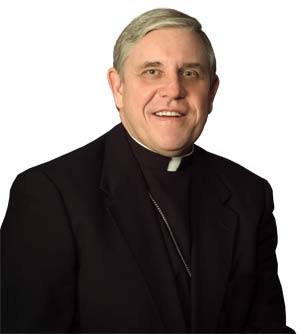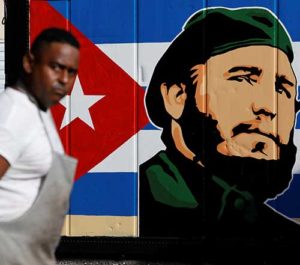 Sir Edmund Burke (1729-1797) said, “Those who do not know history are doomed to repeat it.” This insight was paraphrased a hundred years later by philosopher George Santayana when he said, “Those who do not remember the past are condemned to repeat it.”
Sir Edmund Burke (1729-1797) said, “Those who do not know history are doomed to repeat it.” This insight was paraphrased a hundred years later by philosopher George Santayana when he said, “Those who do not remember the past are condemned to repeat it.”
Santayana’s quote is inscribed on a plaque at Auschwitz, a stark reminder of the cruelty of humanity unchecked.
Today’s Millennial generation, sometimes referred to as Generation Y, are individuals born between the years 1982-2000. Each generation has its unique characteristics, some positive and some less than positive.
The Millennials’ positive attributes are: they are more open minded, receptive to new ideas, upbeat and self-expressive. They are sophisticated in the use of social media. However, a criticism of Millennials is that they do not know history.

An employee of a state-owned candy store looks outside near a painting depicting Cuba’s former President Fidel Castro, following the announcement of Castro’s death, in Havana, Nov. 27. Castro, who seized power in a 1959 revolution and governed Cuba until 2006, died Nov. 25 at the age of 90. (CNS photo/Reuters)
Think about it; Millennials do not remember the Soviet Union and the Cold War. They were born long after the Kennedy embargo and the confrontation that almost created World War III.
They seem at times to idealize “socialism” and its spawn, “communism,” because they have no experience of the enslavement of Eastern Europe, Stalin’s tyrannical purge and the Chinese cultural revolution that killed or murdered 20 to 60 million Chinese.
I remember in my college years seeing more than one poster of Mao, Lenin or Che Guevara in dorms. This romancing of cult leaders without really knowing their philosophies can produce unforeseen consequences because suddenly we are trading our freedoms for Eden-like promises. It’s even more likely to happen when we have no sense of history.
The death of Fidel Castro has caused many of my generation to pause and remember. There are those in our world that will hold Castro up as a revolutionary leader and will sing his praises, declaring he brought stability to the Cuban people, giving a voice to the downtrodden after decades of the tyranny of a Batista regime, but at what cost?
The cost is the loss of individual freedoms. I remember the freedom boats that brought refugees to the shores of the United States. I remember them being housed in the barracks of Fort McCoy, Wisconsin. I remember Cubans escaping from the island. You escape from prison, not from a socialist paradise.
The first group suppressed after the so-called revolution was religion. Yet, it was the church that intervened for Fidel when he was imprisoned for his first failed coup attempt. He was not too proud to accept the assistance and the mercy extended by the church.
So why, after the revolution, did Castro silence the church? Simply because the church was an endangerment to his revolutionary aims. The church would be a constant reminder that the ultimate obligation was to God and not to the revolution or the society.
Marx stated religion is the opiate of the people. Religion may be tolerated as long as it acts to control the people. I’ve long held to the understanding that the role of religion, and thereby the church, is the conscience of a society.
When individuals are being denied their rights, the church’s voice is one that challenges the government’s action. When the government is ignoring the support of its citizens in need for their wellbeing, the church not only offers its resources, e.g., education. health care and welfare, but it also lobbies for governmental attention and change.
During the 26-year pontificate of St. John Paul II, he advocated for the freedom of the people under the communist system by pointing out the failure of communism to respect the individual rights of its citizens. This was, of course, applauded by the Western nations opposed to communism.
But he also challenged Western nations, the so called democratic nations, to realize that laisse faire capitalism, materialism and relativism would create a cancer denying the responsibility each of us has for our neighbor.
When he challenged the West, he was viewed as meddlesome by many political leaders in our culture. But the task of the pope, the leader of our religion, is to speak out as a conscience, reminding us of our responsibilities. He knew history and he could see the destructive course democratic societies had set.
This critique of capitalism might be troublesome for free markets and private property ownership, unless we realize that free markets and private ownership can work for a common cause — the betterment of our society by avoiding greed in all its forms.
Our forefathers envisioned productive ingenuity and an entrepreneurial spirit as a way to make the nation progress. They believed hard work should be rewarded and that equality of opportunity should be the norm. The government should not guarantee support for those who are able to contribute.
In a homily, Pope Francis offered his comments on 2 Thessalonians 3:10: “In fact when we were with you, we instructed you that if anyone is unwilling to work, neither should that one eat.” The pope stated there is a dignity in working and making a contribution for the common good. We can romanticize a government that bestows gifts upon us but that does not support the dignity or creative incentives needed to achieve true human solidarity.
We are in Advent. The church calls us to remember a time when the world waited for the Messiah. During this liturgical season we anticipate his coming.
Through the mystery of the Incarnation we realize that our dignity is rooted in a God who loves us so much that he became one with us. He came in human history. Therefore, we remember always that through him we are connected to one another and we proclaim him in his church until he comes again.
